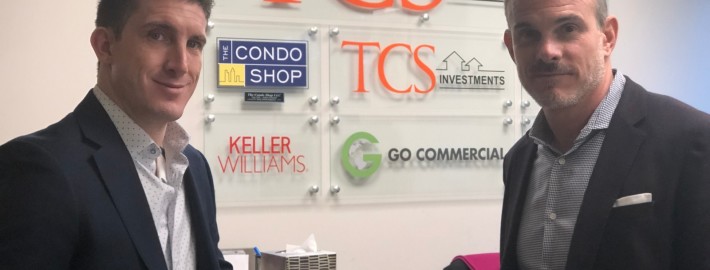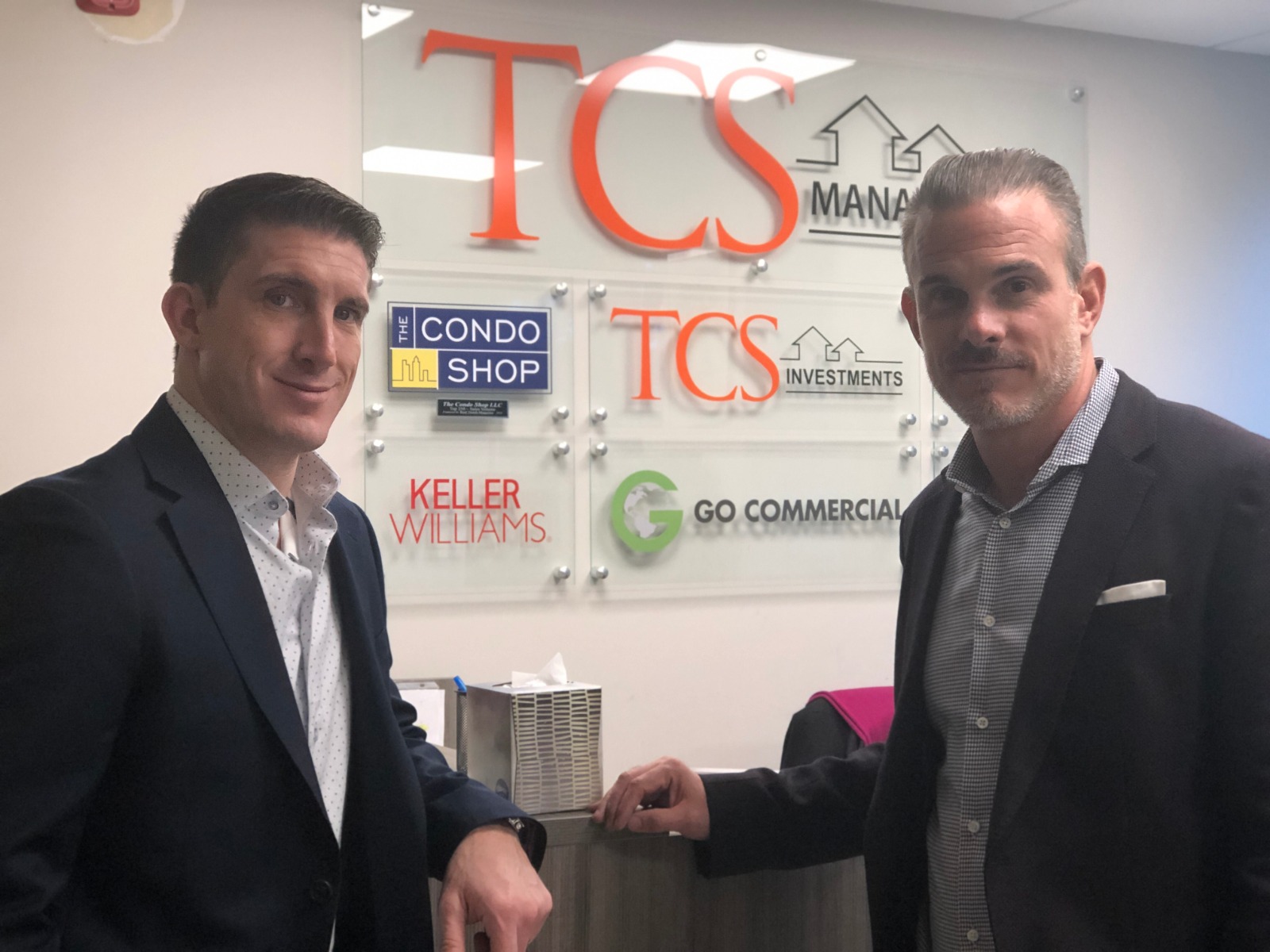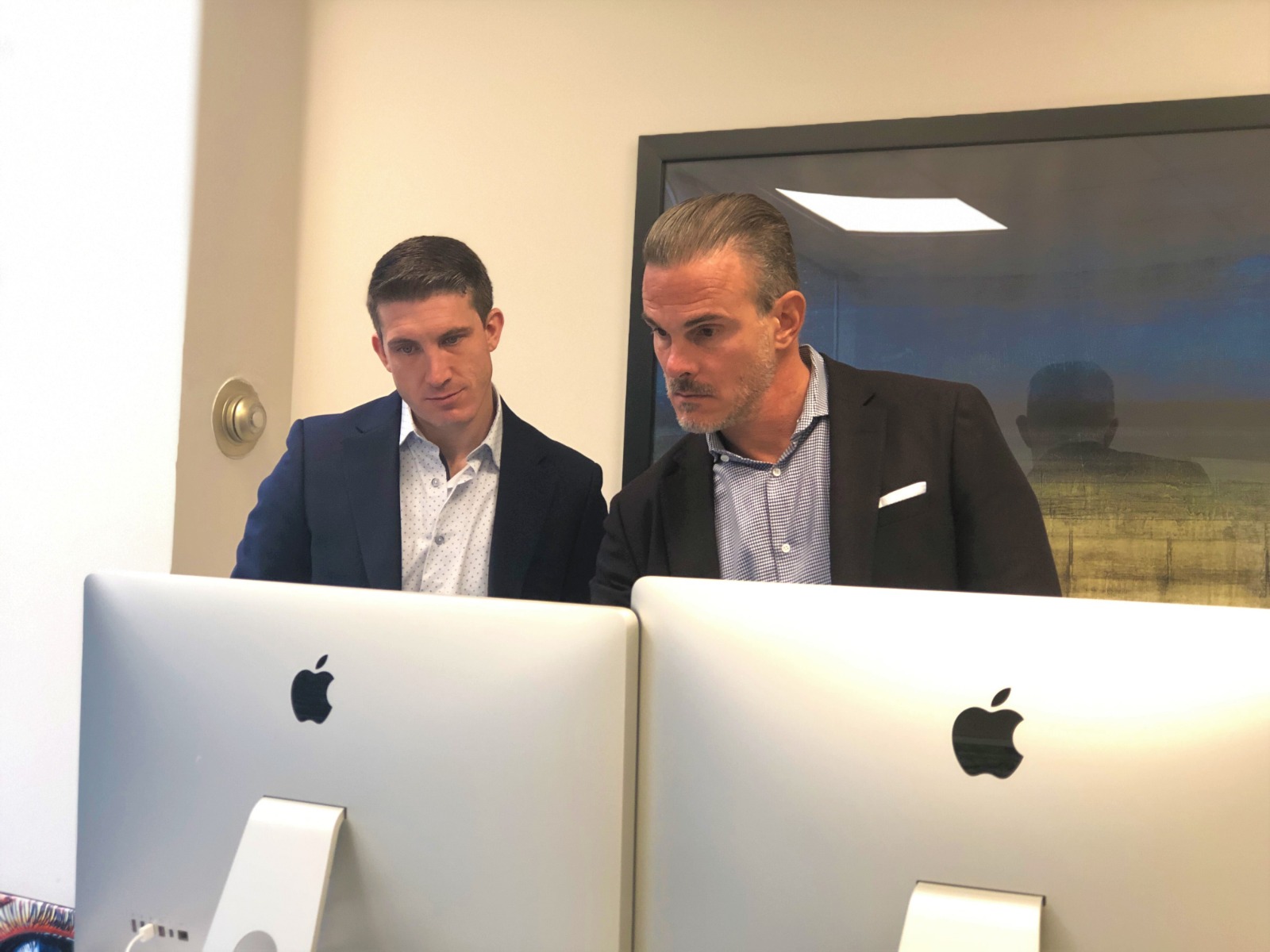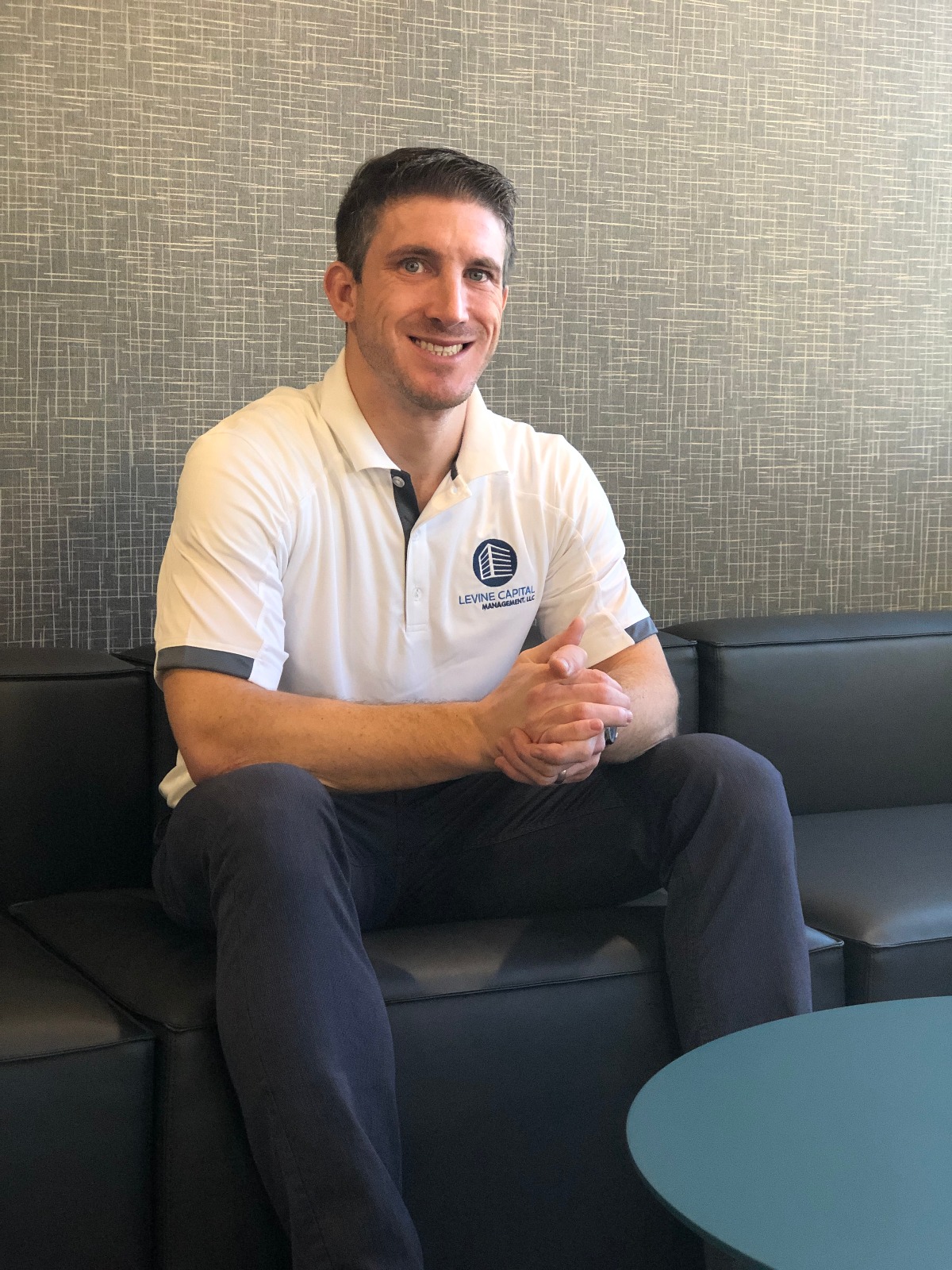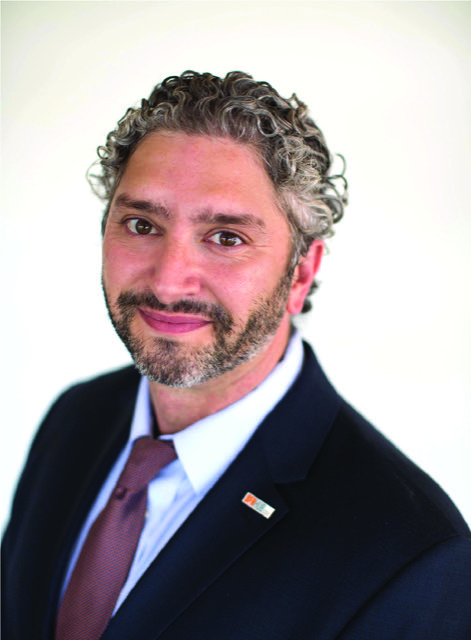By Karen A. Walker
Nobel Prize-winner Albert von Szent-Gyorgy once said that “discovery consists of seeing what everybody has seen and thinking what nobody has thought.” It’s a description that captures what sets LuxHomePro, its processes and its co-founders apart from others. In a nutshell, they think differently about luxury vacation rental property.
Founding partners Jerry Conti and Dave Bynum were introduced by a mutual friend. At the time, Jerry was looking for a fresh, innovative and lucrative opportunity to market.
Dave had just completed an eight-year, remarkably innovative and profitable lead generation program he had developed and managed for a number of major banks from 2001-2008. With that project finished, Dave was also looking for something new that he could really embrace and enjoy as much as he had enjoyed the lead-gen project.
Keep an open mind: Unexpected connections

In truth, nothing innovative happens in a vacuum, and rarely at a convenient time.
As it turns out, Dave was in the midst of planned chaos on the day Jerry called to follow up. That chaos included a camera crew and live taping session with Dean Graziosi. Just days earlier, someone else previously unknown to Dave had tracked him down in an effort to become a silent financial partner on any project Dave had in mind. At the time, Dave didn’t have anything in mind.
Dave kept an open mind to see where it all would lead.
Something clicked in the conversations with Jerry. Their synergy, diverse areas of expertise, shared ethics of openness and trust, serving others, and creating win-win-win opportunities that also allowed for big, ethical profits resulted in the launch of LuxHomePro at the end of 2017.
Culling from his years of experience fixing and flipping homes and short-term rentals, Dave applied his knowledge to what he saw as a new emerging trend: an increasing demand by travelers to rent luxury homes, rather than stay in hotels. AirBNB, VRBO and similar platforms were beginning to pay attention to the trend as well, which opened up even more opportunities for the untapped win-win-win Dave recognized.
“I see opportunities that people don’t see,” said Dave. “I can align the dots enough to get it going and then work through any failures to fix things and make it work.”
And that’s what happened.
Further fine-tuning was needed and the business was in full operation by April 2018, now offering about six seminars a year, with turn-key systems and a variety of optional, more intense training levels to participants.
“I have always led my life by being the quiet guy,” confesses Dave. “When I’m at a meeting or in a crowd, I tend to read the room, figure it out, plant a seed and then listen. I spend more time listening than talking. I find you learn more from others that way.”
In contrast, Jerry is a front and center, get onboard and let’s have fun on the journey kind of person. The two co-founders complement each other wonderfully, and they forged a bond of mutual respect and trust, which makes for engaging, in-depth and hands-on, achievement-oriented learning for their students.
Keep it Real, Keep it Simple

“For us, it always has to be a win-win-win,” underscores Dave. “It’s a whole lot better if everyone is upfront and transparent. When you have a problem, get it out in the open so we can solve it together and move forward. Otherwise it can fester, people sneak around behind others’ backs and it’s just a waste of time and energy. Keep it real! In every negotiation, every relationship, keep it open and upfront.”
“One of the most exciting things for me,” Dave adds, “is when I finally put together all the pieces of a problem or project and it works! It’s exciting for me when people say yes, believe in us, take action on what they learn, and then achieve the same or better results. It’s exciting because it helps change other people’s lives for the better. That matters a lot to Jerry and to me.”
Core Concept
For those who’ve not yet experienced the LuxHomePro opportunity, the core concept is brilliant.
There are basically three components:
▪ Luxury vacation renters. Offer dream housing options to those seeking luxury vacation home accommodations.
▪ Luxury home owners. Offer owners of qualified luxury homes an option to sell at a good price and also to earn significant revenue prior to selling, without any work on their part and without having to wait many months and even years to sell their high-end luxury home.
▪ LuxHomePro Student “Connectors.” Earn high profits, on a consistent basis, following a proven-successful strategy and easy-to-follow templates and systems, without the need to own anything or have good credit.
It’s essential, of course, that the person connecting all parties (“the connector”) follow the system correctly. Everything is laid out for seminar attendees, including how to properly market a property, how to develop attractive pricing, how to upgrade for vacation renters and how to manage the operation efficiently and profitably.
Leave out—or even worse, cut corners—on any one of these components and the promised, sure-fire success is in jeopardy.

For example, rent a luxury vacation rental home from Dave and you’re sure to find such amenities as a hot tub, in-home games, pool or foosball table, baby-sitting and personal chef upgrade options and super-discounted access to local golf club or other luxury amenities. You can count on your experience in one of his homes to be truly luxurious and of more value than that for which you paid. Not cheap, but over-the-top value. That’s what LuxHomePro trains its students to provide.
So, if the LuxHomePro plan is followed as laid out, and if it’s managed correctly, it’s a beautiful thing all around—amazing profits for you within 4-6 months or so, amazing experience for the renter, and amazing profits for the home-owner. A win-win-win.
Not to mention, a no questions asked, money-back guarantee.
What others say
A broker in Michigan who had done fix and flips for years and recently got into short term rentals said he found himself struggling with the short term rentals. “I tried do it the traditional way like you see on YouTube,” he explained “and really struggled with it. I met Dave and he helped me with it, looked at the resources I had to work with and took it from there. He’s thorough. He’s patient and he starts working with you at wherever you are starting out. He can take it to where you want to go.”

Shelly Clayton from Scottsdale echoes the Michigan broker. Shelly raves about how Dave’s system took her from 4% booking rate, which translated into two bookings a year (one of them even cancelled) to a 96% booking rate.
That’s a small segment of real-world, first-hand feedback from those who implemented the LuxHomePro training and systems. And all of it is music to the co-founders’ ears!
For Jerry and Dave, it’s all about helping to change other people’s lives for the better.
Looking forward
Jerry and Dave recently introduced a super simplified option in which they’ll act as a partner for select students who have financial limitations, but a strong desire to participate in the vacation rental industry.
To learn more about all of LuxHomePro’s offerings, go to www.LuxHomePro.com

Top Five Take-Aways from LuxHomePro Seminars:
1. Keen eye. Walk away knowing exactly how to identify profitable luxury rental properties.
2. Love what you do. Find your own niche or niches in the industry from which you’ll be able to master and profit year after year.
3. Only win-win-win. Learn the secrets to setting up deals and negotiations on the basis of a win-win-win where no one gets a bad deal.
4. Positive negotiation. Learn how to successfully negotiate with homeowners so they will jump onto your side and will want to work directly with you.
5. Systems and Automation. Learn which systems to put into place to automate your business for maximum profits and efficiency.
















